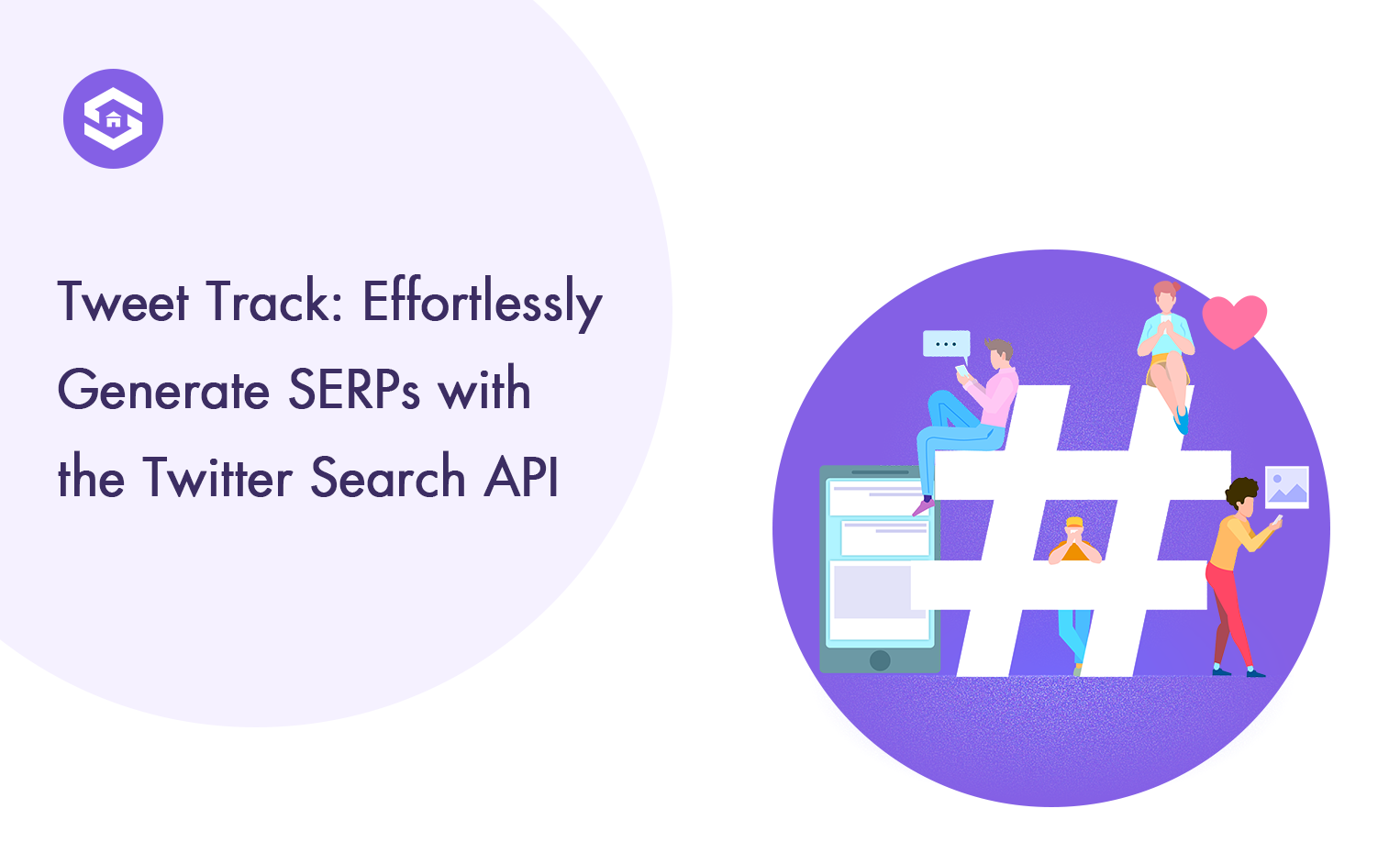Tweet Tracking Made Easy: Generating SERPs with Twitter Search API
8 min read
8 min read

Table of Contents
Table of Contents
In today’s digital age, where information flows at breakneck speed, staying up-to-date on trends and conversations is crucial. Twitter, with its constant stream of real-time updates, offers a valuable treasure trove of data. Tracking tweets can be beneficial for a variety of purposes, including harnessing insights for marketing strategies, gauging public sentiment, and monitoring brand mentions. Leveraging tools like the “Twitter Search API” can streamline the process, allowing for efficient retrieval and analysis of tweet data.
Market research: Analyze client sentiment and brand perception closer to your products or competition.
Crisis management: Identify and deal with capability troubles quickly via tracking mentions of your brand during essential situations.
Event monitoring: Gauge public interest and engagement surrounding a specific event, conference, or hashtag.
However, manually sifting through the vast ocean of tweets can be overwhelming. This is where the Twitter Search API emerges as a powerful tool, allowing you to generate custom Search Engine Results Pages (SERPs) based on relevant keywords and filters.

The Twitter Search API acts as a specialized interface that lets in programmatic access to Twitter’s seek functionality within your programs or initiatives. Imagine it as a digital key that unlocks the door to an extensive library of tweets, permitting you to retrieve particular information based totally on your criteria.
Unlike the Twitter Advanced Search functions on hand through the user interface, the API restricts the time frame of retrievable statistics (normally beyond seven days). It enforces usage limits to ensure truthful access for all developers.
However, the real-time nature of the Twitter Advance Search API is its biggest advantage. You can track conversations as they unfold, gather data for immediate analysis, and gain valuable insights on time. This surpasses the limitations of Streaming API, another Twitter API option, which requires more complex setups and focuses on continuous data streams rather than targeted searches.
To harness the power of Twitter API, you’ll need to follow a few basic steps:
The Twitter Advanced Search API empowers you to generate custom SERPs tailored to your specific needs. Here’s how it works:
Here’s a simplified code example (using Python and the Tweepy library) demonstrating how to retrieve tweets based on a keyword search:
This example retrieves the most recent 10 tweets in English containing the keyword “smartphone launch.” It then extracts specific information like author name, tweet content, creation date, retweet count, and favourite count, storing them in a structured format. You can then utilize this data to build your customized SERPs, displaying the retrieved tweets alongside relevant details.
The Twitter Advance Search API is going past truly generating SERPs. The real power lies in studying the retrieved tweet records to extract valuable insights. Here are some techniques for powerful analysis:
Several online tools and libraries can assist you in performing these analyses. Popular options include:
Twitter Search API and SERP generation possibilities extend across various industries and applications. Here are some examples:

Ready to unleash the power of Twitter data?Let’s get started!
The Twitter Search API unlocks a world of opportunities for monitoring tweets and producing actual-time SERPs based on your specific desires. By harnessing the energy of this API, you can advantage of precious insights into social media conversations, identify developments, and make informed choices across various domains.
So, dive into the world of Twitter Advance Search API, explore its functionalities, and discover how it can empower you to extract actionable insights from the ever-flowing stream of tweets.
Yes, the Twitter Search API allows you to search for tweets containing specific hashtags. This feature is useful for monitoring the popularity and reach of marketing campaigns or trending topics.
Common use cases include monitoring brand reputation, tracking event mentions, conducting sentiment analysis, and researching market trends.
The SERPHouse API can be used to analyze how tweets impact search engine results. By combining Twitter data with SERP data, businesses can gain a deeper understanding of the correlation between social media activity and search engine performance.
The Twitter API offers various features, including filtering tweets by date, language, and location, and retrieving metadata about the tweets and users.
Ready to embark on your tweet-tracking journey? Start exploring the Twitter Search API and unlock the potential of social media data for your projects!